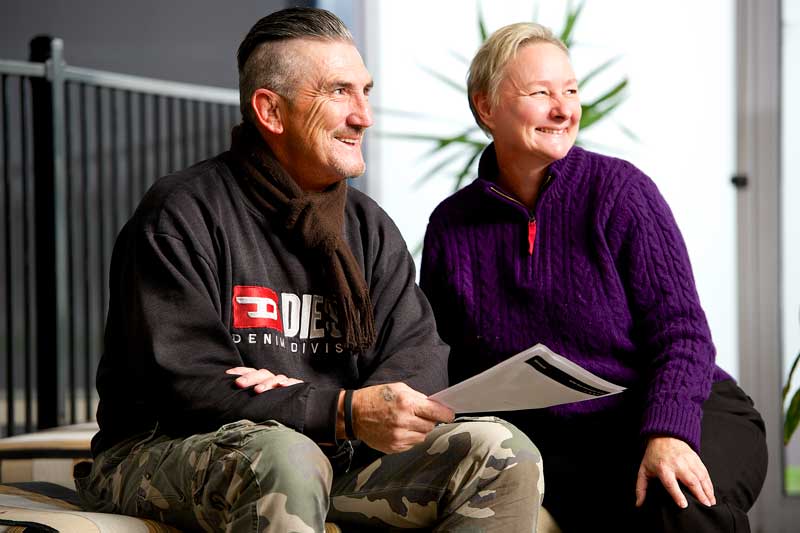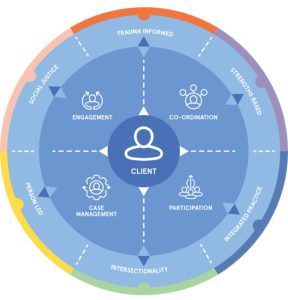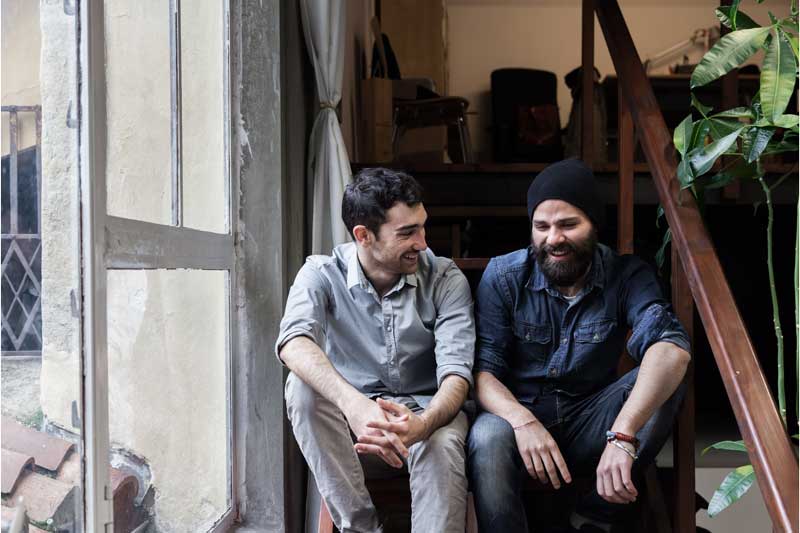
VincentCare Recovery Model
A client led approach that focuses on trauma informed, strengths-based recovery that supports people to achieve their own goals.

At VincentCare we acknowledge each person’s unique identity, circumstance, life experiences, strengths and abilities. We also understand that people experiencing homelessness and disadvantage often face complex health, social and structural barriers that prevent them from achieving their goals. VincentCare’s Recovery Model outlines an approach that provides hope, optimism, and wrap-around holistic support that builds capacity and allows for greater inclusion and community connection.
Our recovery model is grounded in both evidence and the organisation’s extensive history of working compassionately, collaboratively, and effectively with people experiencing homelessness and disadvantage. We use it to promote a shared understanding of our organisational values and the recovery principles that inform our practice, and to create consistency, accountability, and predictability in the services we provide.
Our Recovery Model
At the centre of our approach is the client, steering the ‘compass’ of their own recovery journey where each individuals’ aspirations, goals, choices, and agency are considered.

Our four Practice Frameworks wrap around the client to provide holistic support.
- Engagement: ensures that staff and volunteers are equipped with the skills and knowledge to minimise service refusal, address access barriers and reduce service attrition.
- Coordination: includes consistent and thorough screening and assessment, and efficient internal and external service coordination. It ensures that each client can access a timely and informed response.
- Case Management: person-centred, strengths-based and trauma-informed care. We customise an achievable, sustainable and self-directed plan with a focus on reconnection and recovery.
- Participation: outlines a range of opportunities that build recovery capital, informing service delivery and decision making.
All of these are firmly anchored in our six foundational principles which guide our work and foster a culture of shared values.
- Strengths-Based: considers the abilities, knowledge, skills and capacity that individuals and families bring with them, highlighting the potential in each person regardless of their circumstances.
- Trauma Informed: understands the effects of trauma and its impact on behaviour and coping strategies, emphasising the physical, psychological and emotional safety of the individual.
- Social Justice: a deliberate ethical stance used to guide our actions in response to a range of inequalities and injustices within society.
- Person-Led: puts the person at the forefront of the decision-making process and prioritises their stated needs and goals.
- Intersectionality: recognises that all people each have diverse aspects to their identity and provides a way to consider the systematic layering of barriers and compounding marginalisation’s that people may encounter.
- Integrated Practice: the coordination of multiple services to holistically meet an individual needs and goals.
You can access the document here: VincentCare Recovery Model



